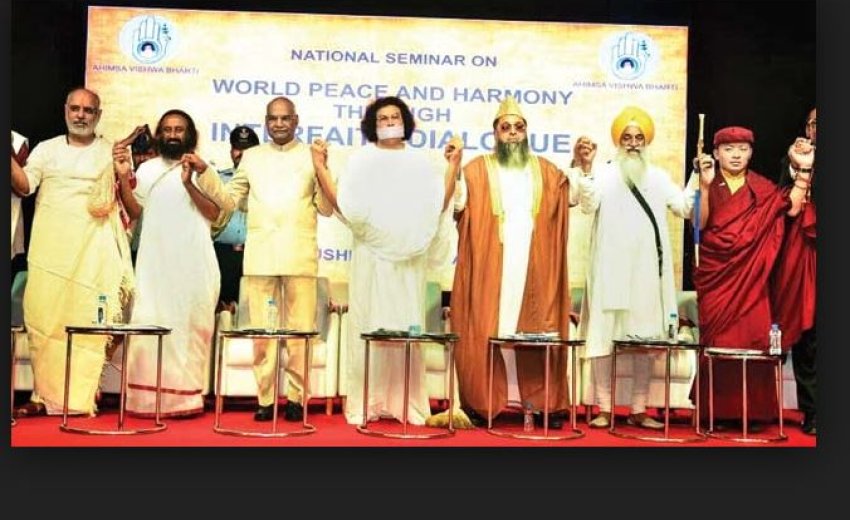 A Jew, a Catholic, a Muslim and a Sikh walk into a lecture hall at the Oblate School of Theology. They have come to compare and contrast their faiths — and the length of their beards.
A Jew, a Catholic, a Muslim and a Sikh walk into a lecture hall at the Oblate School of Theology. They have come to compare and contrast their faiths — and the length of their beards.
Harinder Singh, with the Sikh Research Institute, points out that he has the longest.
“I am wondering if this is some sort of reverse evolution,” he joked.
Singh's religion traces its roots back 500 years. The other three can claim about 4,000, 2,000 and 1,400 years of faith tradition, respectively. They all have less facial hair, but take the same humorous attitude with each other.
For nine years, the school has hosted a lecture each semester with the goal of getting people of faith to talk to other people of faith. It started with representatives of the three religions that trace their beginnings to Abraham, but has since expanded to include the Sikh faith, which is also monotheistic.
Each lecture is based on a subject chosen to highlight the differences between the faiths while pertaining to current events. The subjects have included the role of women, symbols, authority and the religion's structure.
To spice things up, participants once decided to discuss the significance of Jesus.
“No subject is off-limits,” said David Silverstein of Congregation Israel. “If we came together and agreed, it would be a short-lived panel.”
On Wednesday, the group met to discuss how faith informs attitudes and action on ecology. As is common at the series, the differences in outlook and belief were overshadowed by the similarities.
Silverstein explained that Jews have a responsibility to be aware of the impacts their actions have on others.
“The redeemer is the creator,” said Scott Woodward, an assistant professor at the Oblate School, explaining the Catholic understanding. “If we value the redemption, we must value the creation.”
Woodward said this appreciation needed to extend even to sea monsters and insects.
Imam Omar Shakir of Masjid Bilal followed with an even broader list.
“We are one as family but also one with the tree, one with the ladybug and yes, even one with the rat,” he said.
While Sikhs do not believe there is a separation between the creator and creation, the result of respect is the same.
“It's not about just harvesting nature,” Singh said. “It's about being in harmony with it.”
Shakir and Silverstein have participated in the lecture series since it started and have become close friends. They have no problem standing in front of diverse groups to explain their beliefs, but say it is a bit easier when they know their fellow panelists.
“The focus really needs to be on the values,” Singh said.
Familiarity also lets them learn each other's humor. Although Wednesday was Singh's first time on the panel, he sat in the audience before and knew his beard joke would be accepted.
“We are human before we are clergy,” Silverstein said.
